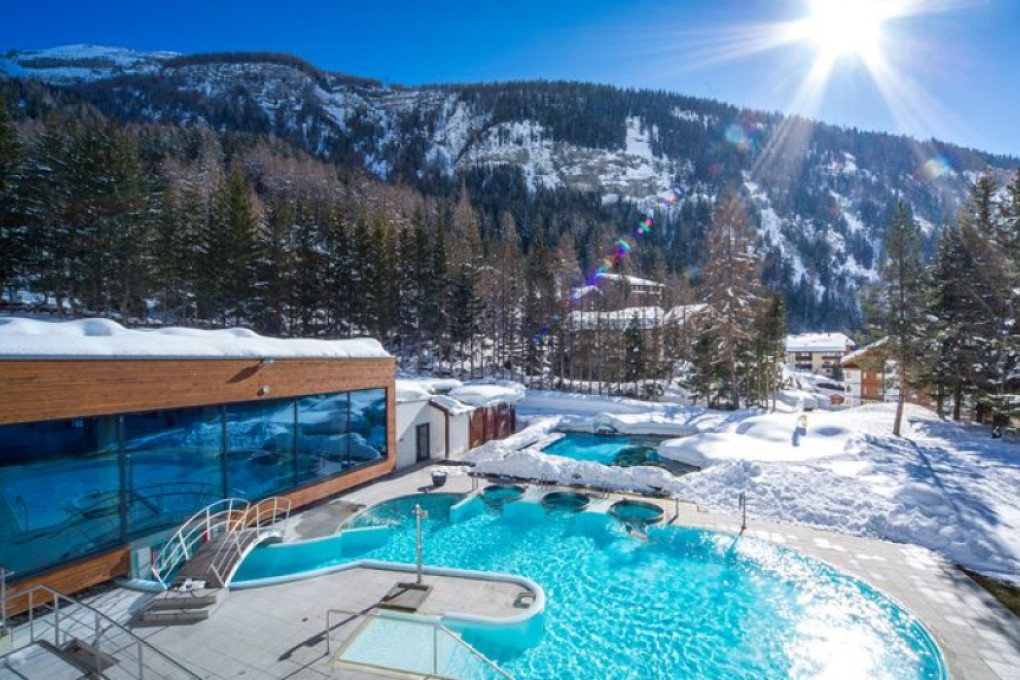Outdoor wellness in alpine setting
Swiss mountain slopes and alpine valleys have long held a special magic for skiers, climbers, hikers and winter-sports enthusiasts from around the world. Recent years have seen a steady rise in the number of health and wellness tourists who come in search of a contrasting type of holiday and a different range of attractions.

Swiss mountain slopes and alpine valleys have long held a special magic for skiers, climbers, hikers and winter-sports enthusiasts from around the world. Recent years have seen a steady rise in the number of health and wellness tourists who come in search of a contrasting type of holiday and a different range of attractions.
"The healing power of nature in the mountains combined with therapies based on local products, as well as thermal baths, is becoming an ever bigger draw," says Veronique Kanel, the Zurich-based spokeswoman for Suisse Tourisme. "Almost all five-star hotels in Switzerland, as well as many of the four-star ones, have their own spa and offer treatments, ranging from milk or hay baths to more exotic therapies such as Ayurveda."
There are world-class spas, not just up in the mountains, but also on the shores of Lake Lucerne and Lake Geneva, including in Lausanne and around Montreux. In the canton of Valais, Leukerbad is reckoned to be Europe's largest thermal destination in the Alpine region, and other upmarket thermal resorts such as Bad Ragaz in Graubunden, Charmey (Fribourg) and Lavey-les-Bains continue to win new converts.
While figures rarely tell the full story, they do show that overnight stays at the more than 70 wellness hotels taking part in Switzerland Tourism's promotional campaign grew by 2.7 per cent in 2013, compared with the previous year. This was slightly above the 2.5 per cent growth for all Swiss hotels for the same period, and there is still every prospect of being able to tap into newer markets.
"The Greater China region is an increasingly important market for us, but taking account of the fact that many Asian countries offer excellent wellness products, the competition is strong," says Kanel. "Therefore, when promoting Switzerland as a health and wellness destination for travellers from Hong Kong and China, we link this aspect to other activities and make a point of the wide variety of other holiday experiences we can offer."
Besides wintertime sports and apres-ski activities, these include opportunities for golf holidays and the diverse historical and cultural attractions of Bern, Basel, Zurich and Geneva.
"Wellness tourism mainly attracts high-end individual travellers," Kanel says. "We have also seen some tour operators from mainland China offering winter trips described as 'pure ski' or 'white winter experience', which also include spa visits and time at a thermal baths. That ties in with our aim for the Hong Kong and Chinese market, which is to offer Switzerland as a multi-faceted destination."
This highlights the concept of "outdoor wellness" as an essential adjunct to the choice of relaxing therapies and so-called "well ageing" treatments experienced indoors.
"Spectacular mountain scenery and active discovery of our country - in winter or in summer - that is where we see some of Switzerland's greatest strengths in the health and wellness sector," Kanel says.